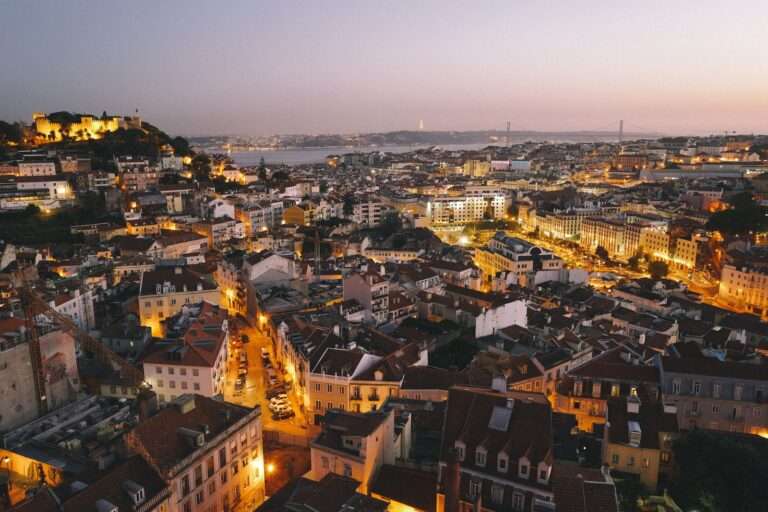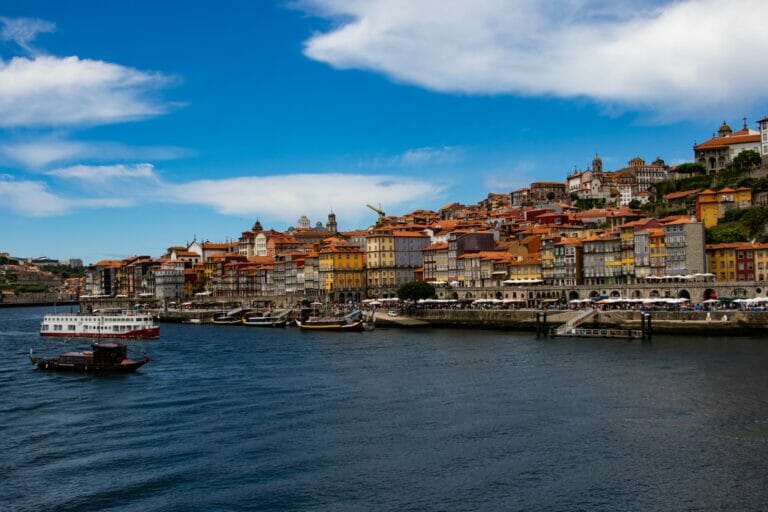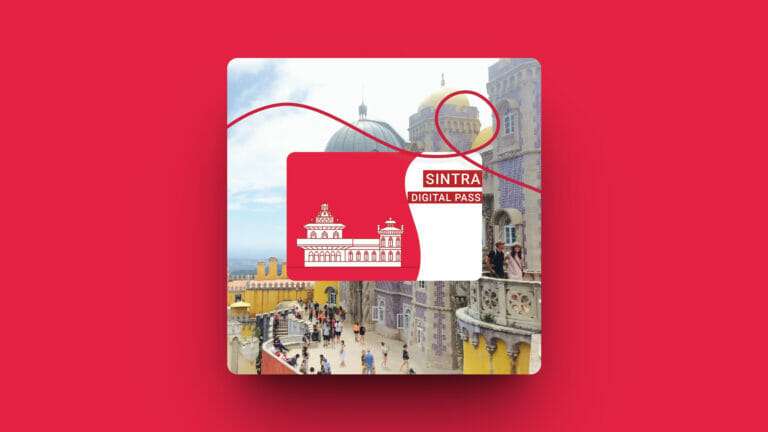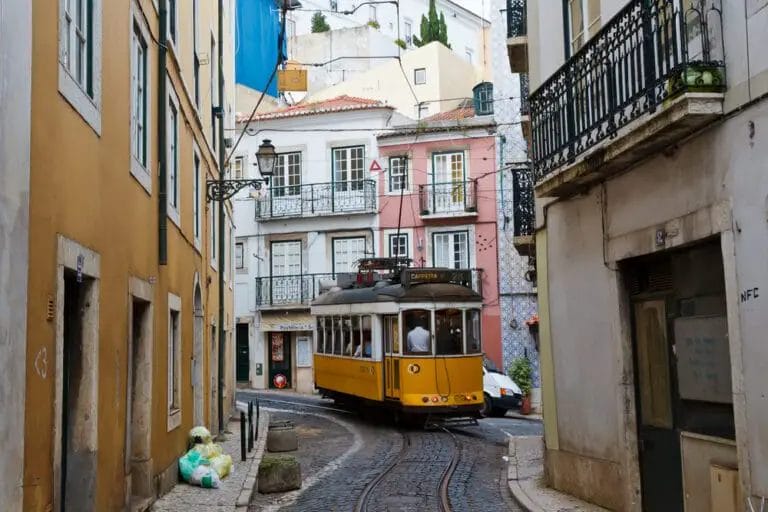Explore the Enchanting National Symbols of Portugal: Animal, Bird, Flower
If you are planning to visit Portugal and wondering to know more about this beautiful country then in this post I will talk in detail about the National Symbol of Portugal covering in detail about the National Animal of Portugal, which is the Iberian wolf, the National Bird of Portugal, and the National Flower of Portugal, alongside the national tree, the cork oak.
Portugal, a land rich in history, culture, and natural beauty, boasts a variety of national symbols that reflect its unique identity, such as the coat of arms seen on the flag of Portugal.
Among these symbols, the national animal holds a special place, embodying the spirit and essence of the nation. In this article, we delve into the significance of Portugal’s national animal, the Iberian wolf, along with other notable national symbols.
From its cultural importance to its conservation status, we explore why these symbols are not only fascinating but also integral to understanding Portuguese heritage.
So let us dive in!
Exploring Portugal’s National Symbols: An Overview
To begin our journey into the national symbols of Portugal, it’s essential to understand the significance they hold for the country and its people.
These symbols, ranging from animals to plants, serve as emblems of Portugal’s rich cultural heritage and natural diversity.
Among them, the national animal stands out as a powerful representation of the nation’s wildlife and ecological significance.
What is the National Animal of Portugal?
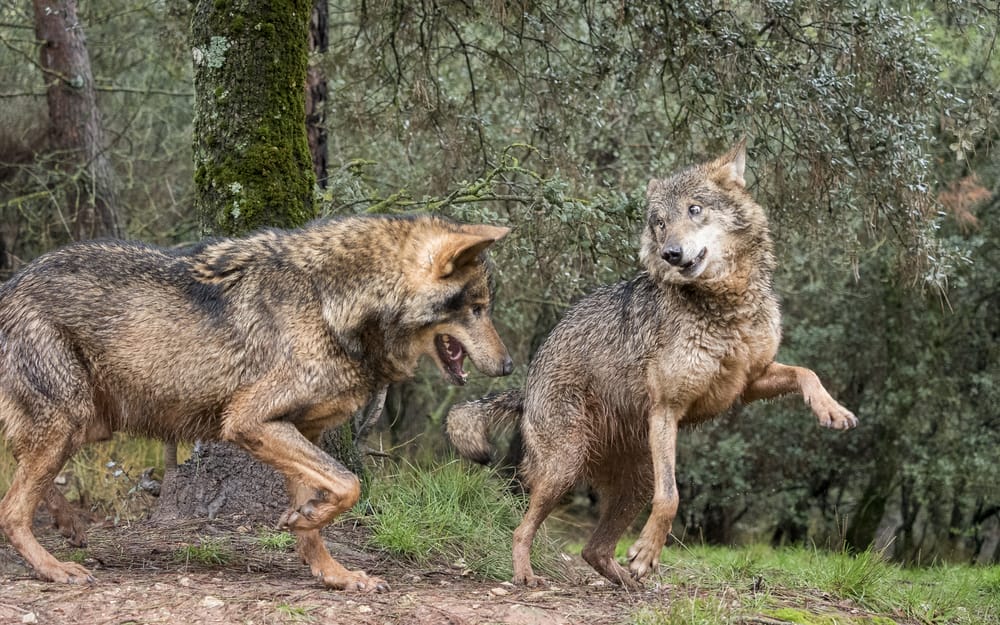
The Iberian wolf, Canis lupus signatus, holds the esteemed title of Portugal’s national animal. Native to the Iberian Peninsula, this majestic creature has long been revered in Portuguese culture and history. From its portrayal in folklore to its role in the country’s ecosystems, the Iberian wolf holds a special place in the hearts of the Portuguese people.
The Cultural Significance of the Iberian Wolf
In Portuguese folklore and mythology, the wolf often symbolizes strength, cunning, and loyalty. Stories of the wolf’s resilience and adaptability abound in Portuguese literature and oral traditions, reflecting the deep-rooted connection between the animal and the cultural identity of the nation. Moreover, the Iberian wolf’s presence in Portugal’s natural landscapes contributes to the country’s sense of place and belonging.
Conservation Efforts and Challenges
Despite its cultural significance, the Iberian wolf, or Portugal’s Iberian wolf as it is sometimes called, faces numerous threats to its survival, including habitat loss, human-wildlife conflict, and illegal poaching. Conservation efforts in Portugal aim to protect and preserve this iconic species for future generations. Organizations dedicated to wildlife conservation work tirelessly to mitigate these threats and ensure the long-term survival of the Iberian wolf in its native habitat.
Other National Symbols of Portugal
Beyond the Iberian wolf, Portugal boasts a diverse array of national symbols that reflect the country’s heritage and identity, including the cork oak tree, recognized as the national tree, and the story of a dead rooster’s miraculous intervention, which is part of the legend of the Rooster of Barcelos.
From the iconic Rooster of Barcelos to the emblematic cork oak tree, each symbol tells a story of Portugal’s rich cultural tapestry. These symbols serve as reminders of the country’s history, traditions, and natural beauty, inspiring pride and admiration among the Portuguese people and visitors alike.
Exploring Portugal’s Wildlife
In addition to its national symbols, Portugal is home to a wealth of diverse wildlife, from birds of prey soaring above the countryside to elusive wild boars roaming the forests.
The country’s varied landscapes, including mountains, forests, and coastal regions, provide habitats for a wide range of species, each adapted to its unique environment. Exploring Portugal’s wildlife offers insights into the country’s ecological richness and biodiversity.
What is the National Bird of Portugal?

The national bird of Portugal is the Barcelos Rooster, also known as the “Galo de Barcelos” in Portuguese. This vibrant and iconic symbol of Portuguese culture is renowned for its colorful depiction and fascinating folklore. The Barcelos Rooster holds significant cultural and historical importance in Portugal, making it a cherished national symbol.
Legend has it that the story of the Barcelos Rooster dates back to the Middle Ages and revolves around a miraculous event. According to the tale, a pilgrim passing through the town of Barcelos was wrongfully accused of a crime and sentenced to death.
As he pleaded his innocence before the judge, a roasted rooster miraculously crowed, proving the man’s innocence. This event led to the release of the pilgrim and the adoption of the Barcelos Rooster as a symbol of faith, justice, and good luck in Portugal.
What is the National Flower of Portugal?

The national flower of Portugal is the Lavender (Lavandula). Lavender is renowned for its delicate purple blooms, soothing fragrance, and versatile uses, making it a fitting symbol for the natural beauty and cultural richness of Portugal, much like its flag and coat of arms.
Lavender holds a special place in Portuguese culture and history, with its aromatic essence often associated with relaxation, tranquility, and well-being, a sentiment echoed in the serene landscapes of Lisbon and Porto.
Throughout the centuries, lavender has been cultivated in Portugal for its medicinal properties, culinary uses, and ornamental beauty. Its vibrant purple flowers add a touch of elegance to gardens, landscapes, and rural scenery across the country, much like how the flag of Portugal adds a touch of pride and tradition to the nation.
Conclusion: Celebrating Portugal’s National Symbols
In conclusion, Portugal’s national symbols, including the revered Iberian wolf and other iconic creatures, play a vital role in shaping the country’s cultural identity and natural heritage.
From the misty mountains of the north to the sun-drenched shores of the south, these symbols serve as reminders of Portugal’s rich history, diverse landscapes, and deep connection to the natural world.
By celebrating and preserving these symbols, we honor Portugal’s past, present, and future, ensuring that they continue to inspire and captivate generations to come.
If you are interested in my series about National Animals then you can check out more National Animals of Greece, Croatia, Germany, Hungary, Poland, Italy.
Frequently Asked Questions about Portugal’s National Symbols
1. What is the significance of the Rooster of Barcelos in Portuguese culture?
The Rooster of Barcelos, also known as the “Galo de Barcelos,” holds immense cultural significance in Portugal. According to legend, the rooster played a crucial role in proving the innocence of a wrongfully accused man. This event led to the adoption of the rooster as a symbol of faith, justice, and good luck. Today, the Rooster of Barcelos is a beloved emblem of Portuguese identity, representing resilience, solidarity, and the power of belief.
2. Why is the cork oak tree considered a national symbol of Portugal?
The cork oak tree, or “Sobreiro” in Portuguese, is revered as a national symbol of Portugal due to its economic, environmental, and cultural importance. Portugal is one of the world’s largest producers of cork, and the cork oak forests play a vital role in preserving biodiversity, preventing soil erosion, and mitigating climate change. Moreover, cork is deeply ingrained in Portuguese culture, with its sustainable harvesting methods and versatile applications symbolizing the country’s commitment to environmental stewardship and tradition.
3. How does the Iberian wolf contribute to Portugal’s ecosystems?
The Iberian wolf, native to the Iberian Peninsula, including Portugal, plays a crucial role in maintaining ecological balance and biodiversity. As a top predator, the Iberian wolf helps regulate prey populations, preventing overgrazing and habitat degradation. Moreover, its presence indicates the health of ecosystems and the interconnectedness of species. By conserving the Iberian wolf and its habitat, Portugal promotes ecosystem resilience and supports the overall well-being of its natural environments, a mission that resonates in the heart of Lisbon, the capital.
4. What are some endangered species found in Portugal, and what conservation efforts are in place to protect them?
Portugal is home to several endangered species, including the Iberian lynx, Iberian eagle, and Mediterranean monk seal, among others, and places like Lisbon and Porto are pivotal in efforts for their conservation. Conservation efforts to protect these species involve habitat restoration, captive breeding programs, anti-poaching measures, and public awareness campaigns. Organizations such as the Institute for Nature Conservation and Forests (ICNF) and non-governmental organizations (NGOs) work tirelessly to safeguard Portugal’s biodiversity and prevent the extinction of endangered species.
5. How do Portugal’s national symbols reflect the country’s cultural heritage and identity?
Portugal’s national symbols, including the Rooster of Barcelos, cork oak tree, and the Iberian wolf, serve as powerful representations of the country’s cultural heritage and identity, underpinned by the flag of Portugal and its coat of arms. These symbols embody values such as resilience, tradition, and environmental stewardship, which are deeply rooted in Portuguese society. By celebrating and preserving these symbols, including the story of a dead rooster’s miraculous intervention, Portugal reaffirms its unique cultural identity and strengthens its sense of unity and pride.
Q: What are the national symbols of Portugal?
A: The national symbols of Portugal include the national animal, the Iberian wolf, the national bird, the red kite, the national flower, lavender, and the national tree, the cork oak.
Q: Why is the Iberian wolf considered the national animal of Portugal?
A: The Iberian wolf holds an important role in Portuguese culture and is a symbol of the country’s wildlife and natural heritage.
Q: Can you name some of the endangered animals in Portugal?
A: Some of the endangered animals in Portugal include the Iberian lynx, the brown bear, and the Mediterranean monk seal.
Q: Where can one see wildlife in Portugal?
A: Wildlife enthusiasts can explore the diverse wildlife of Portugal in natural parks such as Peneda-Gerês National Park and along the Atlantic coast.
Q: What is the significance of the coat of arms in Portuguese culture?
A: The coat of arms of Portugal represents the country’s history, traditions, and national identity. It is an emblem of pride for the Portuguese people.
Q: Which animal plays a crucial role in the Portuguese folklore and culture?
A: The rooster holds a special place in Portuguese folklore, symbolizing courage, luck, and faith. Legend has it that a rooster’s miraculous intervention helped prove Portugal’s sovereignty.
Q: What is the national tree of Portugal?
A: The cork oak is the official national tree of Portugal and is widely cultivated for its valuable cork production.
Q: What is the national flag of Portugal known for?
A: The flag of Portugal features the traditional colors of green and red, with the country’s coat of arms at the center. It symbolizes the nation’s history and heritage.

